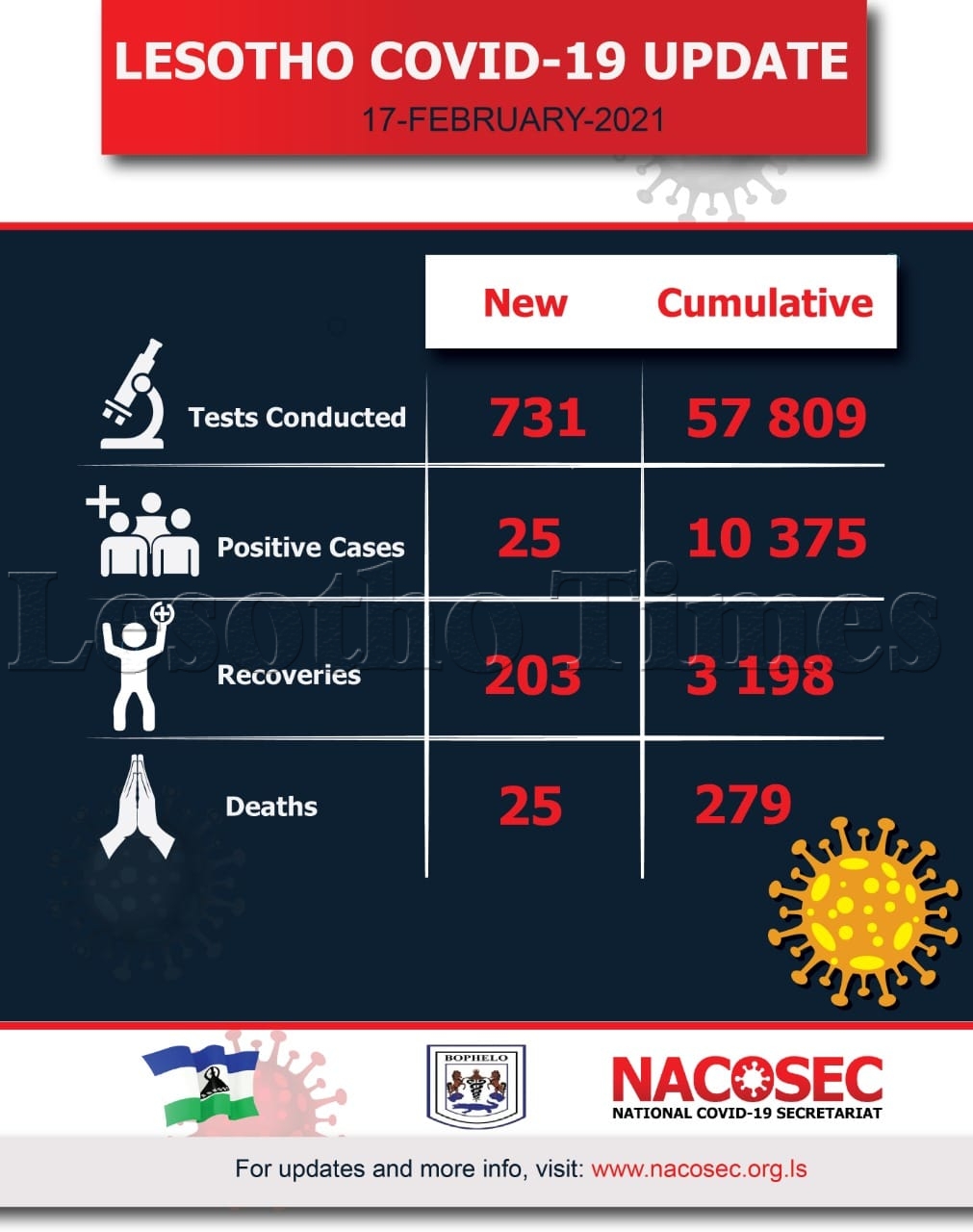Staff Reporter
LESOTHO achieved an unwanted milestone this week after Covid-19 infections breached the 10 000 mark.
According to the latest statistics released yesterday by the National Covid-19 Secretariat (NACOSEC), Lesotho has now recorded a staggering 10 375 infections and 279 deaths.
This comes against the background of a steep rise in cases in the aftermath of the December 2020 festive season.
During that period thousands of Basotho returned home from South Africa without being tested at the ports of entry or without presenting any valid certificates confirming they were free of the deadly virus.
Neighbouring South Africa is 16th in the world for Covid-19 infections. As of yesterday, it had recorded a cumulative 1 496 439 infections and 48 478 deaths.
Although Lesotho’s infections and deaths are a tiny drop in the ocean when compared to South Africa, the figures are still worrying and very significant given that Lesotho has a much smaller population of just 2, 1 million.
While the plus 10 000 cases are worrying, even more concerning is the relatively low number of tests that have been conducted by the National Reference Laboratory (NRL). To date only 57 809 tests have been conducted.
Former health Minister Motlatsi Maqelepo last year said the NRL had the capacity to test 2000 specimens daily.
But it has never tested anything close to that figure. The highest it has achieved is 900 tests in a single day. Most of the time, it tests much less than 900 people. For instance, on 1 January 2021, NACOSEC tested 236 people which is only about 10 percent of the 2000 the NRL had said it could test per day.
On 20 January 2021, NACOSEC released results for only 54 tests and the figure dropped further to just 43 tests a few days later on 26 January.
NACOSEC risk communications manager Baroane Phenethi last night said they have been failing to test the promised 2000 specimens daily because of under-staffing. He also said in some instances they were deterred from reaching the target by lack of testing consumables.
“Basically, the lack of human resources has deterred us from achieving our goals. Another challenge was the shortage of testing consumables,” Mr Phenethi said.
He however, said the system was now improving as they have now stepped up contact tracing and hired more staff.

